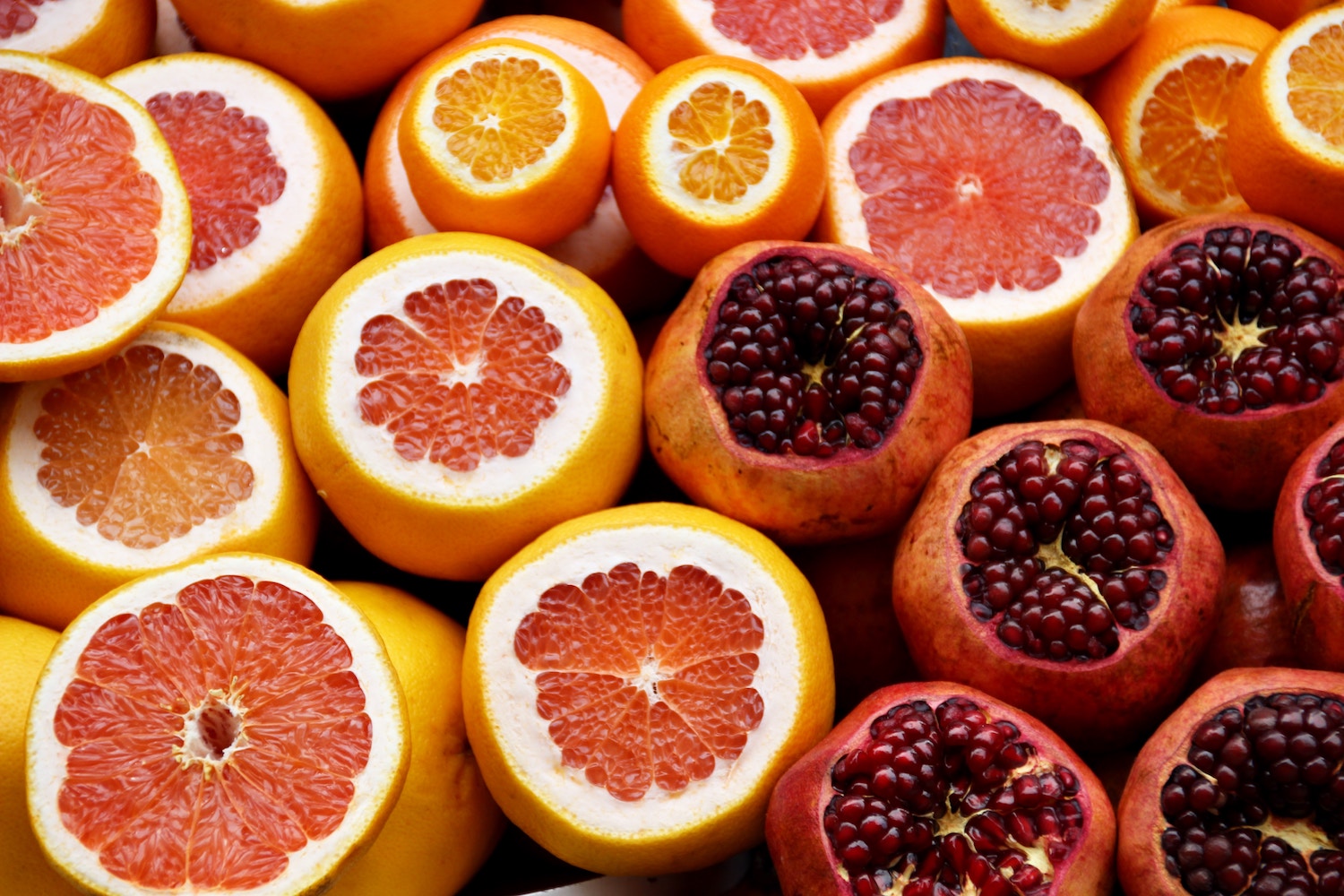世間には抗酸化物質が溢れている。「スーパーフード」と呼ばれる食品類やスキンケア用品、チョコレートや赤ワインに至るまで、多くの製品がこれに該当する。抗酸化物質を含む製品は、健康維持に必須との謳い文句で販売されており、病気に強い体を作り、老化の防止を約束している。
しかし、一般に広く信じられているほどに、本当にそれは体に良いのだろうか?
抗酸化物質とは何か?
抗酸化物質とは、酸化と呼ばれる化学的プロセスから他の分子を保護する雑多な分子の総称だ(分子とは、複数の原子が化学結合によって一体化したもの)。酸化作用は、体内の代謝プロセスを担うDNAやタンパク質など、細胞内の重要な分子を傷つける可能性がある。
細胞が正常に機能するためにはDNAなどの分子が必要とされる。それらの分子があまりに多くダメージを受けると、細胞自体が機能不全を起こし、場合によっては細胞死を起こす。ここで抗酸化物質が重要になってくる。抗酸化物質は、酸化のダメージを防いだり、軽減したりする。また人の体内には、酸化反応を過剰に引き起こす反応性の高い分子が存在し、それらは「フリーラジカル」と呼称される。
酸化とは何か?
酸化とは、ひとつの分子から別の分子に電子が移動する一般的な化学反応のことだ。電子は、およそ万物を構成する素粒子(原子よりも小さい粒子)の一種である。酸化反応によって電子が移動すると、分子内の結合が破壊され、分子構造が変化をきたす。
すべての酸化反応が悪いというわけではない。その反応は私たちの生存には不可欠であり、多くの重要な体内プロセスに関わっている。細胞呼吸においては、グルコース(最も一般的な食品由来の砂糖)は肺呼吸で吸収された酸素によって酸化され、そこから二酸化炭素、水、エネルギーを生成して体に燃料を供給する。また家庭用漂白剤は、酸化作用を応用して衣類の色汚れを無色の分子に転換している。好ましくない酸化反応としては、金属の錆びや、酸化による食品の劣化などがある。
フリーラジカルとは何か?
フリーラジカルとは、1つ以上の不対電子を有する分子のことだ。電子は電子対をもって安定するので、もしそこに不対電子があると、その分子は不安定かつ高い反応性を持つようになる。このフリーラジカルは、それ自身が安定するために他の安定した分子から電子を奪う(あるいは遊離させる)。ある分子が電子を失うと、その分子は酸化され、それ自体がフリーラジカル化する。
この新たなフリーラジカルは、また別の分子から電子を奪い、連鎖的な酸化反応を引き起こす。このようなプロセスにより、分子構造が完全に変化し、不可逆的な分子損壊につながることもある。
しかしそこに抗酸化物質が存在すると、それがフリーラジカルに電子を差し出し、安定化させ、酸化の連鎖を止める。抗酸化物質は他の分子の身代わりとして酸化作用を受け、自身がフリーラジカル化する。しかし多くの他の分子とは異なり、抗酸化物質は不対電子をそれ自身で安定化させる能力を持つので、その反応性は高くない(しかしこのプロセスを通じて、抗酸化物質としての機能は失われる)。
では、フリーラジカルがあらゆる場面ですべて有害かと言うと、必ずしもそうではない。反応性が高く破壊作用を持つフリーラジカルは、体内の免疫系において活用されている。「食細胞」と呼ばれる特殊な白血球は、バクテリアなどの異物を包み込み、フリーラジカルを放出し、異物を破壊するのに利用する。
フリーラジカルは私たちの体内で自然に生成されるが、ストレスや劣悪な食事、汚染、喫煙、飲酒など、生活習慣要因によって増加することもある。私たちの体はある程度までフリーラジカルに対抗できるが、あまりにも過剰なフリーラジカルが形成されると、身体の正常な防御機能が損なわれてしまう。
フリーラジカルによる損壊は老化の一因とも考えられている。また、ほかにも様々な疾患を引き起こす。例えばフリーラジカルがDNAに与える損傷は、遺伝子変異の引き金となり、癌の原因にもなる。
すべての抗酸化物質が同じではない
このように、フリーラジカルは有害で、老化や病気を引き起こすが、逆に抗酸化物質はそれを緩和する機能を持つ。ではこの事実をふまえて、できるだけ多くの抗酸化物質を摂取することが賢明だろうか?残念ながら、実際にはそこまで単純ではない。確かに抗酸化物質の量と酸化ストレスのレベルは身体の健康とリンクする。それは事実だが、すべての抗酸化物質が一様な作用を持つわけではないのだ。
抗酸化物質には多くの種類、起源がある。体内で自然に生成されるものもあれば、食品中にもともと含まれるものもある。天然・合成の別を問わず、抗酸化物質は、想定される健康増進機能を付加するため、または食品を保存するために、新たに別の食品に添加されることもある(抗酸化物質はまた、食品自体の酸化を抑制する)。
体に必要な抗酸化物質を得るための最も効果的な方法は、健康的な食事をとることだ。果実、野菜、穀類、卵、ナッツ類は、すべて抗酸化物質の摂取源として有用だ。一方、世間で誇大に宣伝されているいわゆる「スーパーフード」に関しては、そこに含まれる抗酸化物質が、普通の果物や野菜のものより特に優れているかと言えば、そうとも限らない。わざわざそのために余分な出費をする価値があるかは疑問だ。
また、「抗酸化サプリメント」については別の注意が必要だ。ある研究の中では、抗酸化サプリメントがむしろ悪影響をもたらす可能性が指摘された。「抗酸化サプリメントは効果的でない。または健康に有害ですらある」と結論づけたメタ分析もある。これは70以上の試験結果をふまえて2012年に実施された分析だ。詳しい理由は未解明だが、むしろ健康的な食事の中で抗酸化物質を多めに摂取する方が、健康上より良い可能性がある。さらには、サプリメントから摂取する高濃度の抗酸化物質がもたらす問題も指摘されている。
過剰摂取の問題点
高濃度の抗酸化物質が有害である理由をいくつか挙げてみよう。過剰な抗酸化物質は次のように作用する可能性がある。
- プロオキシダントとして作用し、むしろ酸化を促進する
- 健康な細胞だけでなく、有害な細胞(癌細胞など)も保護してしまう
- 運動がもたらす健康上の効果を低減させる
- 吐き気や頭痛など望ましくない副作用を引き起こし、毒性のレベルにまで達することもある
この世には魔法の万能薬のようなものは、無論存在しない。しかし健康的な食事こそが、フリーラジカルの害に対抗する各種の抗酸化物質を上手く摂取するための秘訣だとは言えるだろう。
This article was originally published on The Conversation. Read the original article.
Courtesy of Jacqui Adcock | Research Fellow in Analytical Chemistry, Deakin University
![]()
Antioxidants seem to be everywhere; in superfoods and skincare, even chocolate and red wine. Products that contain antioxidants are marketed as essential for good health, with promises to fight disease and reverse ageing.
But are they really as good for us as we’re led to believe?
What are antioxidants?
The term antioxidant covers a wide range of molecules (atoms bound together by chemical bonds) that protect other molecules from a chemical process called oxidation. Oxidation can damage vital molecules in our cells, including DNA and proteins, which are responsible for many body processes.
Molecules such as DNA are needed for cells to function properly, so if too many are damaged, the cell can malfunction or die. This is why antioxidants are important. They can prevent or reduce this damage. In the body, uncontrolled oxidation is typically caused by highly reactive molecules known as free radicals.
What is oxidation?
Oxidation is a common chemical reaction where electrons are transferred from one molecule to another. Electrons are one of the subatomic (smaller than an atom) particles that make up pretty much everything. As electrons move during an oxidation reaction, bonds can be broken and the structure of the molecules changed.
Not all oxidation reactions are bad. They are essential for life and involved in many important processes. In cellular respiration, glucose (a sugar from the food we eat) is oxidised by oxygen (from the air we breathe), producing carbon dioxide, water and energy to fuel our bodies. Household bleaches oxidise coloured stains into colourless molecules.
Less desirable oxidation reactions include the rusting of metals and oxidative food spoilage.
What are free radicals?
Free radicals are simply molecules with one or more unpaired electrons. Electrons like to be in pairs, so unpaired electrons can result in unstable and highly reactive molecules. To become stable, the free radical must steal an electron from another molecule (or give one away). When a molecule loses an electron, that molecule has been oxidised and itself becomes a free radical.
This new free radical can steal an electron from another molecule, starting a chain reaction. This process permanently changes the structure of the molecules, causing irreversible damage.
But if an antioxidant is present, it can donate an electron to the free radical, stabilising it and stopping the chain reaction. The antioxidant sacrifices itself and is oxidised instead of the other molecule, becoming a free radical. But unlike most molecules, the antioxidant is able to stabilise the unpaired electron and does not become highly reactive. This process deactivates the antioxidant.
Free radicals aren’t always bad for you. Their highly reactive and destructive nature is used by the body’s immune system. Certain white blood cells, called phagocytes, can engulf foreign particles, such as bacteria, then seal them off and release free radicals to destroy them.
Free radicals are generated naturally by our bodies, but can be increased by lifestyle factors such as stress, poor diet, pollution, smoking and alcohol. Our bodies can handle some free radicals, but if too many are formed it can overwhelm the body’s normal defences.
Free radical damage is thought to be one of the causes of ageing and contribute to various diseases. For example, free radical damage to DNA can cause genetic mutations and promote cancer.
All antioxidants aren’t equal
So, if free radicals are dangerous and cause ageing and disease, and antioxidants can neutralise them, then getting more antioxidants should be good for you, shouldn’t it? Unfortunately, it’s not as simple as that. Yes, high antioxidant levels and low oxidative stress are associated with good health, but not all antioxidants are equal.
Antioxidants come from many sources. Some are naturally produced in the body and some naturally occur in foods we eat. Antioxidants (natural or synthetic) can also be added to foods that don’t normally contain them, either for their (supposed) health value or to preserve the food (antioxidants also prevent oxidation in foods).
A healthy diet is the most effective way to get the antioxidants your body needs. Fruits, vegetables, grains, eggs and nuts are all useful sources of antioxidants. Despite the marketing hype, antioxidants found in so-called superfoods are no more effective than those in regular fruit and veg, so you’re better off saving your money.
But it’s a different story when it comes to antioxidant supplements. Research has found antioxidant supplements may cause more harm than good. A 2012 meta analysis of over 70 trials found antioxidant supplements are ineffective or even detrimental to health. The reasons are unclear, but the added nutritional benefits from consuming antioxidants in a healthy diet is likely to contribute to this. Also, the high concentrations of antioxidants associated with supplement use can lead to problems.
Too much of a good thing
There are a number of reasons why high concentrations of antioxidants may be harmful. At high concentrations, antioxidants may:
– act as pro-oxidants, increasing oxidation
– protect dangerous cells (such as cancer cells) as well as healthy cells
– reduce the health benefits of exercise
– have unwanted side effects, such as nausea and headaches, or even reach toxic levels.
There is no magic pill, but a healthy diet can provide you with all the antioxidants you need to fight free radical damage.



